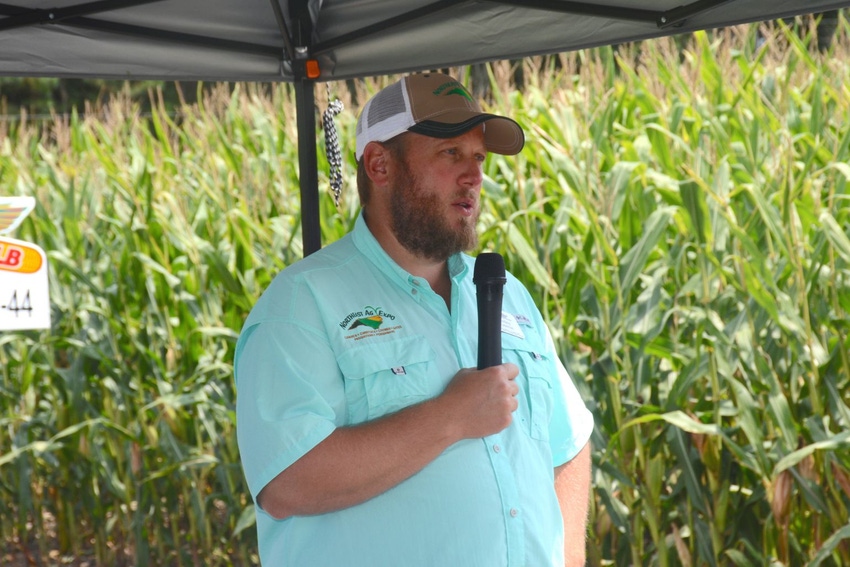
North Carolina seeing a few dicamba drift complaints
As the month of July drew to a close, 13 official complaints of dicamba drift have been reported to the North Carolina of Agriculture, but the number of official complaints could increase, which is why North Carolina State University is continuing to urge careful stewardship of the technology.

As the month of July drew to a close, 13 official complaints of dicamba drift damage have been reported to the North Carolina of Agriculture and Consumer Services, but the number of official complaints could increase, which is why North Carolina State University is continuing to urge careful stewardship of the technology.
Patrick Jones, deputy director of pesticide programs for NCDACS, says most of the cases are spread across eastern North Carolina with one case in Union County in western North Carolina. Official complaints have been filed in Beaufort, Hyde, Jones, Tyrrell, Union and Wilson Counties.
Jones said there are eight tobacco cases, four soybean cases and one peanut case. “One tobacco grower in Jones County had four different fields with four different applicators so we filed four separate cases to handle it better,” he explained.
“We took samples on each of the cases and we will wait until we get the samples back to see what they show. We had the inspectors to go through the labels and see what may have caused the drift, whether wind speed, time of day, air inversions or improper setup of the equipment or not leaving the buffer zones or whatever,” Jones noted.
The department will examine each individual case and determine what needs to be done. Inspectors will determine if the applicator was at fault or if there was another cause for the drift damage “We can take appropriate action. It could be no action to a notice of warning to a civil penalty. It just depends on what we find with the cases,” Jones said.
Most of the damage is to small fields with the largest field being 132 acres. Jones estimates less than 450 acres are impacted. There have been no complaints filed so far in sweet potatoes, fruits and vegetables or home gardens. “The training really has helped us out,” he said.
North Carolina State University conducted mandatory auxin training this winter, attended by more than 3,000 applicators and farmers in more than 30 separate sessions across the state.
Speaking at the Northeast Ag Expo Field Day in Belvidere, N.C. July 27, Wes Everman, N.C. State Extension weed specialist, said the mandatory training may have played a role in the limited number of official dicamba drift complaints, but he said the biggest factor overall is good stewardship and management by North Carolina farmers.
“That’s the main reason we’re not having the issues here,” Everman said. “But just because we only have a few now doesn’t mean we can’t have more later. We can’t get complacent. We have to keep managing this technology in our applications more than we do any of the others. We have to follow the rules, pay attention to the wind and what’s going on with the weather. Keep doing it right and even do it better.”
Everman reminded the field day crowd that the dicamba products have a temporary two-year label. “EPA can pull these products at any time. As far as weed management goes, we need many tools to manage our resistant weeds. If we keep using it right, we have a better case of trying to keep it around,” he said.
To keep dicamba, farmers must demonstrate that they are using dicamba right and managing it properly. “Keep doing it right and give us a fighting chance to hold onto it,” he emphasized.
Everman said the big challenge in North Carolina is high-value crops such as tobacco and vegetables that are very susceptible to dicamba drift damage.
“We all know how much money you can lose drifting on somebody else’s tobacco. We have seen drift on tobacco, but we have also seen people using dicamba right across the path from tobacco with no trouble,” he said.
Everman said most of the drift issues in North Carolina are due to the weather. He again urged farmers not to apply dicamba when the weather is conducive to drift. “A farmer will say, ‘I have to spray the weeds ---the heck with the wind. Don’t do that,” he stressed.
About the Author(s)
You May Also Like





